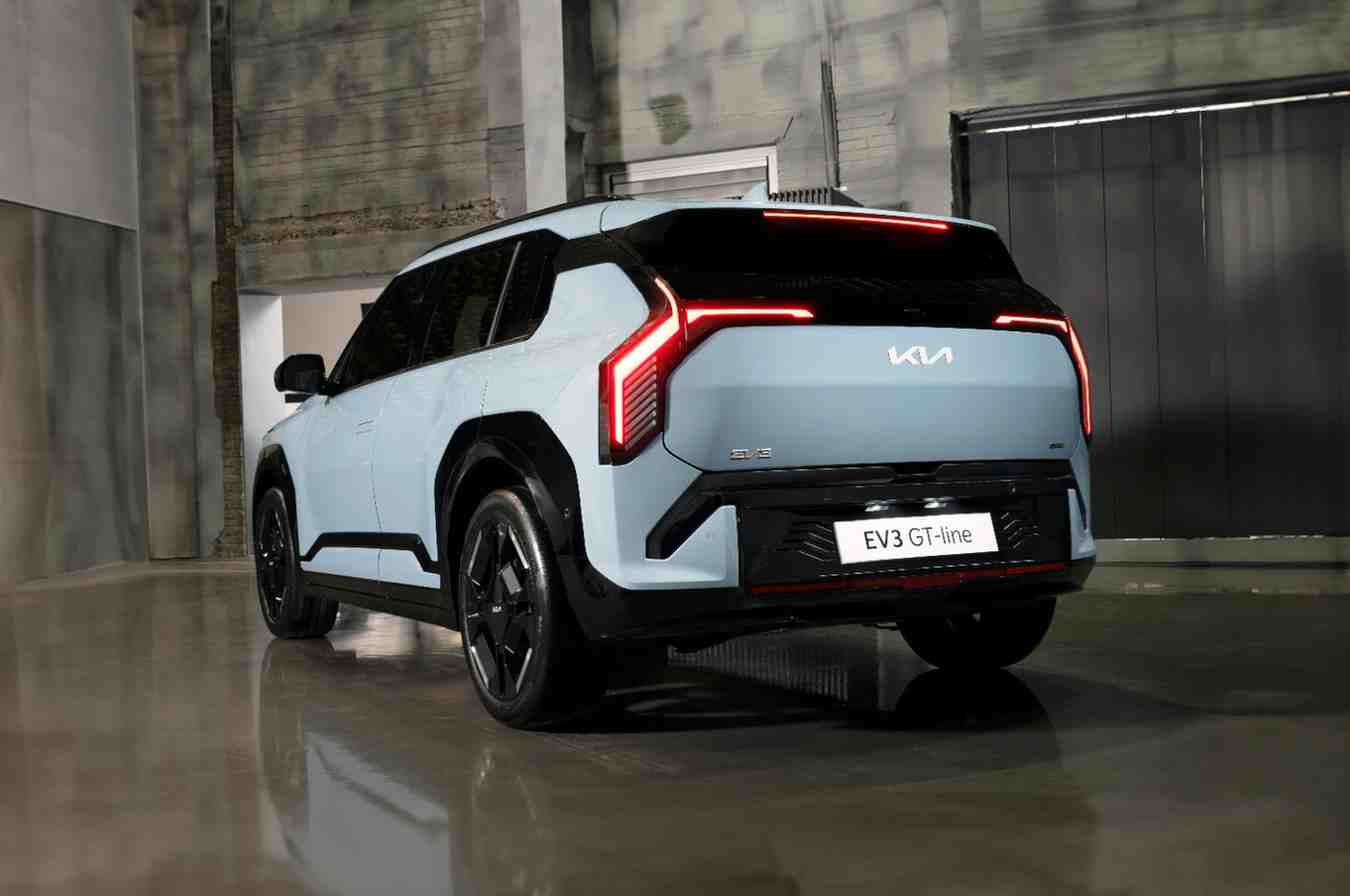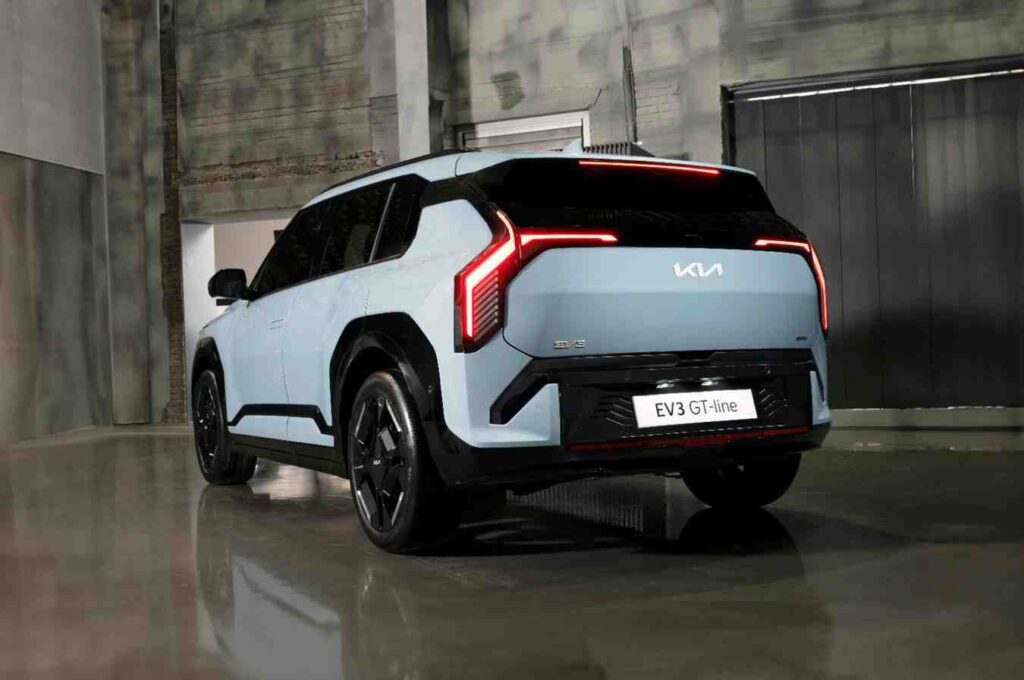Your cart is currently empty!
Tag: Kia Auto Insurance

Nissan Auto Insurance best coverage and affordable rates
As a proud Nissan owner, you understand the importance of maintaining and protecting your vehicle. Whether you drive a sleek Nissan Altima, a rugged Nissan Frontier, or an eco-friendly Nissan Leaf, having the right auto insurance is crucial to safeguarding both your car and your finances.

In this comprehensive guide, we’ll explore the key aspects of Nissan auto insurance, including coverage options, factors that influence premiums, and tips for finding the best policy.
Why Nissan Auto Insurance Matters
Auto insurance is more than just a legal requirement; it’s a financial safety net that protects you from the high costs of accidents, repairs, and other unexpected events. For Nissan owners, insurance is especially important as repair costs and part replacements for vehicles with advanced technology can be expensive.
Nissan’s dedication to innovation, safety, and performance means that having the right auto insurance can help ensure your car remains in top condition, whether you’re on the highway or navigating city streets. By choosing coverage that aligns with your needs, you can avoid costly out-of-pocket expenses in the event of a collision or other damage.
Coverage Options for Nissan Vehicles
When selecting Nissan auto insurance, it’s essential to understand the different coverage options available. Each type of coverage plays a specific role in protecting you, your car, and your passengers.
Liability Insurance
Liability insurance covers the costs of damage or injury to others if you’re found at fault in an accident. It typically includes:
- Bodily Injury Liability: Pays for medical expenses for injured parties.
- Property Damage Liability: Covers repairs or replacements of other people’s property, such as vehicles or buildings.
For Nissan owners, liability insurance is the bare minimum required by law in most states, but it’s wise to consider higher coverage limits for added protection.
Related Post: Kia Auto Insurance
Collision Insurance
Collision coverage pays for damage to your Nissan if you’re involved in an accident, regardless of fault. Whether you’re in a fender bender or a more serious collision, this coverage helps repair or replace your vehicle. For newer or high-value Nissan models, collision coverage is especially beneficial, as repairs can be costly.
Comprehensive Insurance
Comprehensive insurance protects your Nissan from non-collision-related incidents, such as theft, vandalism, or natural disasters like hailstorms and floods. Nissan vehicles equipped with advanced features, such as smart keys or integrated security systems, may qualify for lower comprehensive insurance premiums.
Uninsured/Underinsured Motorist Coverage
This type of insurance is vital for Nissan drivers, as it provides protection if you’re involved in an accident with a driver who doesn’t have adequate insurance. It covers medical expenses, repairs, and other costs that the at-fault driver’s insurance would have paid if they were properly insured.
Personal Injury Protection (PIP)
Personal injury protection (PIP) covers medical expenses for you and your passengers after an accident, regardless of who is at fault. In some cases, PIP may also cover lost wages and other related costs, making it a valuable addition to any Nissan auto insurance policy.
Factors That Affect Nissan Auto Insurance Rates
Your Nissan auto insurance premiums are influenced by several factors. Understanding what affects your rates can help you find a policy that provides comprehensive coverage at a reasonable cost.
Nissan Model and Year
The model and year of your Nissan significantly impact your insurance rates. For example, newer models with advanced safety features, like the Nissan Rogue’s ProPILOT Assist, may qualify for discounts. On the other hand, high-performance models like the Nissan GT-R might come with higher premiums due to the vehicle’s value and performance capabilities.
Safety Features
Nissan vehicles are known for their cutting-edge safety features, which can lead to lower insurance premiums. Features like adaptive cruise control, automatic emergency braking, and lane-departure warnings reduce the risk of accidents, making your Nissan less of a liability to insurers. If your vehicle has earned high safety ratings from organizations like the IIHS or NHTSA, you might also qualify for reduced premiums.
Driver Profile
Your personal driving profile plays a significant role in determining your Nissan auto insurance rates. Factors such as your age, location, driving history, and credit score all affect how much you’ll pay for coverage. Younger drivers or those with less experience may face higher rates, while experienced drivers with clean records are more likely to secure lower premiums.
Claims History
If you’ve filed multiple claims in the past, you may be seen as a higher risk to insurers. This can result in increased premiums, even if the claims were not your fault. Nissan owners with a clean claims history can often benefit from discounts or lower rates.
Choosing the Best Nissan Auto Insurance
With so many options available, finding the best Nissan auto insurance can feel overwhelming. However, by comparing policies and focusing on your specific needs, you can secure the right coverage for your vehicle.
Nissan-Recommended Insurance Providers
Nissan has partnerships with certain insurance providers that offer exclusive benefits for Nissan owners. These providers may offer discounts on premiums, access to Nissan-certified repair shops, and other perks. It’s worth asking your local Nissan dealership about any recommended insurance partners.
Comparing Major Providers
When shopping for auto insurance, it’s essential to compare quotes from different providers. Look for insurers that offer competitive rates, a wide range of coverage options, and strong customer service. Some of the top auto insurance providers that cater to Nissan owners include:
- Geico
- State Farm
- Progressive
- Allstate
Each company has its own strengths, whether it’s offering affordable premiums, excellent customer support, or comprehensive coverage options. Be sure to review their policies carefully to determine which one meets your needs.
Online Tools for Nissan Insurance
Many insurance providers offer online tools that make it easy to compare quotes, customize coverage, and purchase policies. Nissan’s website may also offer resources for finding the best insurance options for your specific model. Be sure to take advantage of these tools to streamline the process and ensure you’re getting the best deal.
The Nissan Auto Insurance Claims Process
In the unfortunate event that you need to file a claim, it’s important to understand the process to ensure a smooth experience.
Filing a Claim
To file a Nissan auto insurance claim, start by contacting your insurer as soon as possible after an accident or damage occurs. You’ll need to provide details such as the date, time, and location of the incident, as well as any relevant documentation (e.g., police reports, photos of the damage).
Repair Networks
Many insurance providers work with Nissan-certified repair shops to ensure your vehicle is repaired using genuine Nissan parts. This not only helps maintain the quality and safety of your vehicle but also preserves its resale value. Be sure to ask your insurer if they offer access to a network of Nissan-approved repair centers.
Conclusion:
Choosing the right auto insurance for your Nissan is essential to ensuring the safety and longevity of your vehicle. By understanding your coverage options, comparing providers, and taking advantage of discounts and benefits, you can secure the best possible policy at a reasonable price. Protect your investment and enjoy the peace of mind that comes with comprehensive Nissan auto insurance coverage.

Kia Auto Insurance coverage, costs and essential tips
Kia vehicles are known for their reliability, affordability, and innovative features, making them a popular choice for drivers across the globe. However, owning a Kia also comes with the responsibility of ensuring your car is adequately protected. Auto insurance is crucial for all car owners, and finding the right coverage for your Kia can save you from unexpected expenses and stress.

In this post, we’ll cover the various types of Kia auto insurance, factors that affect insurance costs, and how to choose the best coverage for your needs.
Aspect Details Legal Requirement Liability coverage is mandatory in most states. Types of Coverage – Liability Coverage
– Collision Coverage
– Comprehensive Coverage
– PIP
– Uninsured/Underinsured Motorist CoverageSpecial Considerations – Advanced Safety Features
– Vehicle Value and Depreciation
– Maintenance and Repair CostsChoosing Insurance – Assess Your Needs
– Compare Policies
– Look for Kia-Specific Discounts
– Use Tools and ResourcesCost Factors – Model and Year
– Driving Record
– Location
– Deductibles and Coverage LimitsTips for Saving – Bundle Policies
– Take Advantage of Offers
– Increase Deductibles
– Maintain a Good Credit Scorearticle’s overview Why Kia Owners Need Auto Insurance
Auto insurance isn’t just a legal requirement—it’s a financial safety net that protects you from costly repairs, medical bills, and potential lawsuits in the event of an accident. Every state in the U.S. requires drivers to carry a minimum amount of liability coverage, but Kia owners should consider additional coverage options for enhanced protection.
Kia vehicles come with unique considerations due to their modern technology, specific maintenance needs, and market value. Whether you own a Kia Soul, Sportage, or Telluride, your insurance should reflect these factors to ensure you’re fully protected.
Beyond legal requirements, Kia auto insurance safeguards against a range of risks, including accidents, weather-related damage, and theft. With the right coverage, you can protect your Kia and your finances, ensuring you can quickly recover from any unexpected events on the road.
Types of Kia Auto Insurance Coverage
When it comes to insuring your Kia, it’s essential to understand the different types of coverage available. Each type offers unique protection, and choosing the right combination can provide comprehensive coverage for your vehicle.
1. Liability Coverage
Liability coverage is the minimum insurance required by law in most states. It covers the cost of damages and injuries to others in an accident where you’re at fault. While this coverage protects you from legal liabilities, it doesn’t cover damage to your own vehicle. For Kia owners, this coverage is necessary but may not be sufficient on its own, especially for newer or higher-value models.
2. Collision Coverage
Collision coverage is particularly important for Kia owners who drive newer models. It covers the cost of repairs to your vehicle if you’re involved in an accident, regardless of who is at fault. Since Kia vehicles are equipped with advanced safety features, repair costs can be higher, making collision coverage a valuable addition to your policy.
3. Comprehensive Coverage
Comprehensive coverage goes beyond accidents and protects your Kia from non-collision-related damages, such as theft, vandalism, and weather-related incidents like hail or flooding. This coverage is especially important if you live in an area prone to natural disasters or have a high risk of vehicle theft.
4. Personal Injury Protection (PIP)
Personal Injury Protection (PIP) covers medical expenses for you and your passengers, regardless of who caused the accident. In some states, PIP is required as part of no-fault insurance laws. This type of coverage can be a lifesaver in the event of a severe accident, covering not only medical bills but also lost wages and rehabilitation costs.
5. Uninsured/Underinsured Motorist Coverage
Despite legal requirements, some drivers still operate vehicles without sufficient insurance. Uninsured/underinsured motorist coverage protects you if you’re involved in an accident with a driver who doesn’t have adequate insurance. This is particularly important for Kia owners, as repair costs can add up quickly, especially with newer models that feature high-tech safety and entertainment systems.
Special Considerations for Kia Models
When choosing auto insurance for your Kia, it’s essential to consider the specific features and needs of your vehicle. Kia models are known for their cutting-edge safety features and affordability, but these characteristics can also influence your insurance premiums.
1. Safety Features
Kia vehicles come equipped with advanced safety features such as lane departure warnings, blind-spot monitoring, and automatic emergency braking. These features reduce the risk of accidents, which can help lower your insurance premiums. Many insurance companies offer discounts for vehicles with such safety technologies, so be sure to ask your provider about potential savings.
2. Vehicle Value and Depreciation
While Kias are generally affordable, the value of your vehicle still plays a significant role in determining your insurance costs. Newer models like the Kia Telluride or Kia Stinger may require higher premiums due to their higher market value, while older models may qualify for lower rates. However, even with depreciation, it’s important to ensure you have adequate coverage to repair or replace your vehicle in the event of an accident.
3. Maintenance and Repair Costs
Kia offers one of the best warranties in the industry, but it’s essential to remember that warranty coverage and insurance coverage are not the same. While your warranty may cover certain repairs, insurance is necessary for damages caused by accidents, theft, or natural disasters. The cost of repairs can vary depending on the model and the complexity of the vehicle’s features, making comprehensive and collision coverage crucial for protecting your investment.
How to Choose the Best Insurance for Your Kia
Selecting the right insurance for your Kia can feel overwhelming, but by following a few key steps, you can find the best policy for your needs.
1. Assess Your Needs
Consider factors such as your driving habits, the model and age of your Kia, and where you live. If you frequently drive in congested areas or live in a region prone to severe weather, you may want to opt for more comprehensive coverage.
2. Compare Policies
Don’t settle for the first insurance quote you receive. Instead, take the time to compare policies from multiple providers. Look for policies that offer a good balance between premiums and coverage, and don’t hesitate to ask for Kia-specific discounts.
3. Look for Kia-Specific Discounts
Many insurance providers offer discounts for vehicles equipped with advanced safety features, as well as for drivers with a clean driving record. Additionally, some insurers have partnerships with Kia dealerships, offering exclusive discounts to Kia owners. Be sure to inquire about any special offers available to you.
4. Use Tools and Resources
There are several online tools and resources available to help you compare auto insurance policies. Use these tools to find the best rates and ensure you’re getting the coverage you need at a price that fits your budget.
Cost Factors for Kia Auto Insurance
Several factors influence the cost of your Kia auto insurance, including the model of your vehicle, your driving record, and where you live.
1. Model and Year
The model and year of your Kia will play a significant role in determining your insurance premiums. Newer models with more expensive technology and higher market value typically cost more to insure than older models.
2. Driving Record
A clean driving record is one of the easiest ways to lower your insurance premiums. Insurance providers reward safe drivers with lower rates, while those with traffic violations or accidents on their record may face higher premiums.
3. Location
Where you live also impacts your insurance costs. Urban areas with higher rates of accidents, theft, and vandalism will typically result in higher premiums than rural areas.
4. Deductibles and Coverage Limits
Adjusting your deductibles and coverage limits can also influence your premium. Opting for higher deductibles may lower your monthly premium but can result in higher out-of-pocket costs if you need to file a claim.
Conclusion
Choosing the right Kia auto insurance is essential for protecting your vehicle and your financial well-being. By understanding the different types of coverage available and considering factors such as your driving habits, vehicle model, and location, you can select a policy that offers the best protection for your Kia. Don’t forget to explore discounts, compare policies, and use online tools to ensure you’re getting the most value for your insurance investment.
FAQs about Kia Auto Insurance
1. What types of auto insurance are recommended for Kia owners?
Kia owners should consider liability, collision, comprehensive, personal injury protection (PIP), and uninsured/underinsured motorist coverage for comprehensive protection.2. How can I lower my Kia auto insurance premiums?
You can lower your premiums by bundling policies, taking advantage of discounts for safety features, maintaining a clean driving record, and increasing your deductibles.3. Does Kia offer any specific insurance discounts?
Yes, many insurance providers offer discounts for vehicles with advanced safety features, and some have partnerships with Kia dealerships for additional savings.4. How does my driving record affect my insurance costs?
A clean driving record can significantly lower your premiums, while a record with accidents or violations may increase your costs.5. Are there any specific considerations for insuring new Kia models?
Newer Kia models may have higher insurance premiums due to their market value and repair costs, but they often come with advanced safety features that can qualify you for discounts.6. Is liability coverage enough for my Kia?
While liability coverage is legally required, it may not be sufficient for newer or higher-value Kia models. Comprehensive and collision coverage are recommended for better protection.

